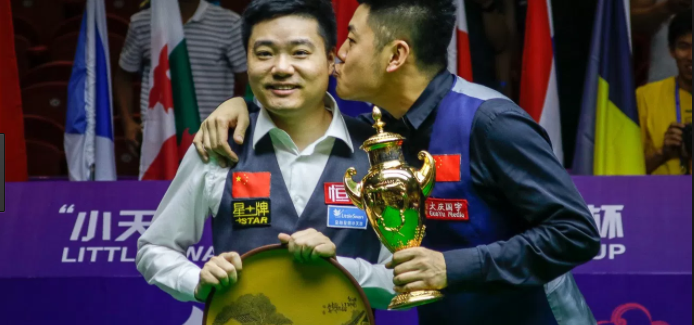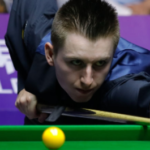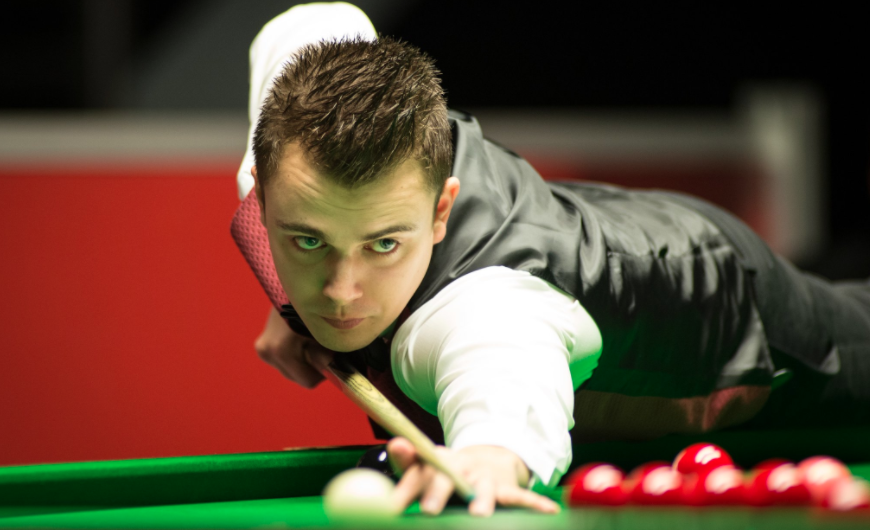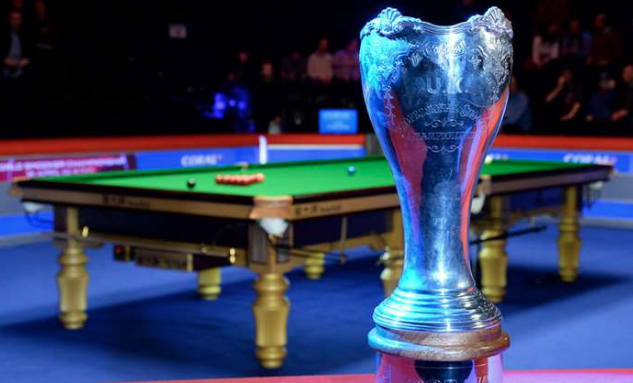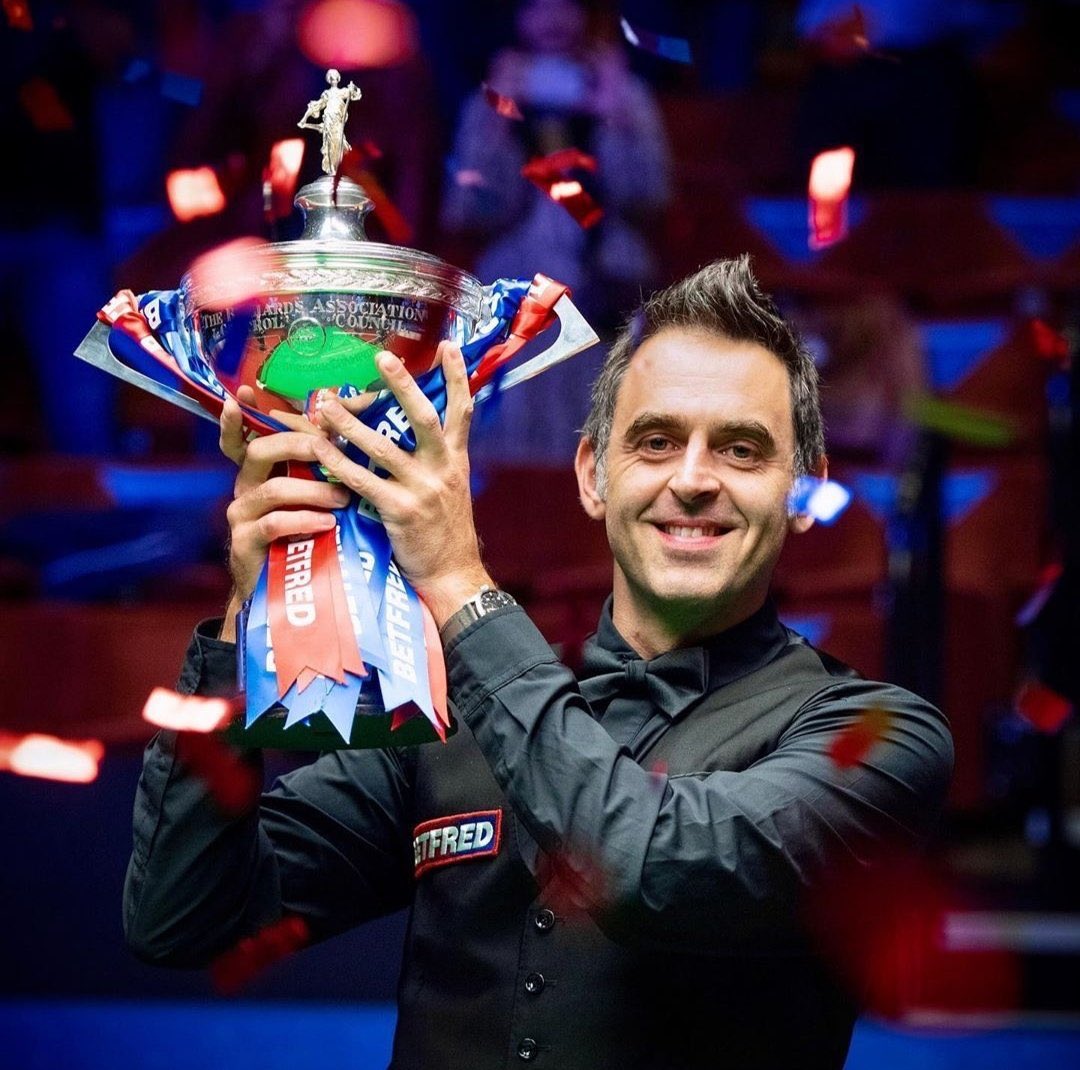Now that the dust has settled, China has won the World Cup for the third time in a row. After winning in 2011 as well as 2015, China A duo Liang Wenbo and Ding Junhui forced a decider against England pair Judd Trump and Barry Hawkins from 3-1 behind to win 4-3. Despite finishing second in their group to Belgium, they put down group winners Wales and Thailand to reach the final. England was dominant, having conceded only three frames in five group matches, scraped through two deciders against Northern Ireland and defending champions China B. In the final frame that would make any Chinese fan orgasm in delight, local hero Ding was dominant against fan favourite Trump by making a 59 break to clinch the coveted World Cup trophy.
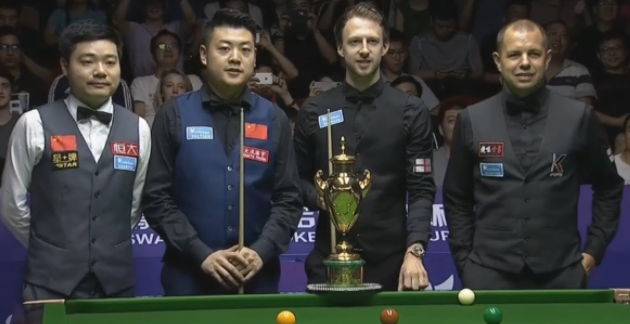
All in all, it’s been a very enjoyable tournament. There is plenty to talk about this year’s World Cup and whether it bettered 2015 and I believe it passed with flying colours. There was more interest in the magic bubble of Twitter, more coverage and in some ways a lot of players were actually enjoying themselves! But what has the World Cup down right and what does it need to improve on? If you need my recap, here is the link: FEATURED: World Cup – is it a great or a flawed idea?
Competition is greater
It is always expected that the quarter-final places will be dominated by the professionals. After all, only one player among the quarter-final teams is an amateur. When competition is greater, that means there are more shocks on the cards. Even though no-one pays too much heed towards seedings, three ranked teams in Scotland, Hong Kong and Australia lost out at the expense of Thailand, Belgium and Iran. Having a Middle-Eastern and a Continental-Europe team in the quarter-finals is only going to spread a good word of the game. Brazil was one frame away from knocking out China A!
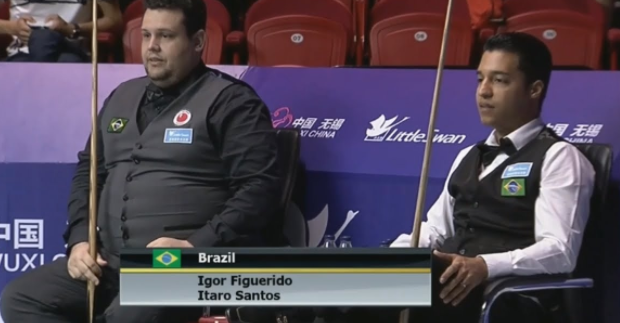
Now that we are aware of the teams of the World Cup, I think fans are more understanding of how tough the World Cup is. Compared to the disappointment of English duo Stuart Bingham and Mark Selby coming 3rd in the group behind China B and Thailand, it is perhaps less of a surprise the 2015 runners-up Scotland lost out to Thailand and Northern Ireland, considering that group also had former semi-finalist India in the mix.
One could argue that there is a major gulf between the snooker-dominant nations such as China, the United Kingdom and Thailand and those newer territories such as Cyprus, Pakistan and Egypt but that is always going to happen, It will take a good nuber of years for these nations to challenge against the big boys, but this is only the start!
Lesser-known players are impressing
We saw how then lowly-ranked Zhou Yuelong and amateur schoolboy Yan Bingtao soared up the rankings as high as football transfer prices this summer. Of course, this is unlikely to do the same to Liang and Ding in the same vein, but we can theorise that success in the World Cup gave Zhou and Yan valuable confidence to show off their talents on the tour. Both players are comfortably in the Top 64. Hossein Vafaei is another who participated for Iran in 2015 and rose up the ranking and worked well with Soheil Vahedi to reach the Last 8 of the World Cup.
Get out of that!
🇮🇷's Vafaei causing trouble for Trump early on… Live now on @Eurosport_UK! #WorldCup pic.twitter.com/xcXrAsDi2F
— WST (@WeAreWST) July 5, 2017
The brilliant thing about inviting newer snooker nations to the World Cup is that you may, of course, find a hidden gem every now and again. Two players outside of the Top 64 stood out in this year’s World Cup and they came from Belgium and Germany. Belgian amateur Jeff Jacobs played very well with Luca Brecel to prove that there is no such thing as a one-man team that they reached the quarter-finals, before being knocked out by China B. Jacobs was the only amateur in the quarter-finals and that is quite an achievement for someone of his calibre. On the other hand, newbie Lukas Kleckers also impressed. After beating Neil Robertson 4-3 in the Riga Masters, people were becoming more aware of the sole German professional. He played very well, notching off single frames against great players such as Liang and Ding.
Hopefully, this will provide Lukas with a great platform to make a great start in his first year on tour. We shall see!
That's one way to get yourself out of trouble! 🇩🇪🔥
Watch live on Eurosport 2. #WorldCup pic.twitter.com/RcH93FUGzi— WST (@WeAreWST) July 3, 2017
The final should be longer
For the purists who are struggling to get used to the idea that best-of-7 matches are the norm, you can argue that the final is pretty underwhelming. Apart from the Gibraltar Masters, the final is always the longest match of the tournament because it marks an occasion that the best two performing teams battle it out over a long period of time after gruelling matches in the previous rounds. With the name “World Cup,” you expect room for a long fight. So it is a bit weird that the final has the same maximum length as the semis and the quarter-finals!
Some of it was exciting but HATED the format. Matches way too short, this will never produce true champions.
— Jim O'Hare (@jimnohare) July 10, 2017
Of course, this is not to say the final wasn’t interesting – I just wish they most the most of the final, especially since the match didn’t last very long at all – probably two and a half hours. Imagine a final shorter than that? AND AS A RANKING EVENT??? As long as I do not mention the Snooker Shoo-
How to win a group?
This is something I do not understand. How can winning the most frames be prioritised over winning the most matches in the World Cup?
Not the score line we wanted today but it's another win. 5 out of 5 but somehow don't top our group?! Next up is favs England #norniron
— Mark Allen (@pistol147) July 7, 2017
This happened in Group D when Northern Ireland, who won all of their five matches and 16 frames, were placed below Thailand, who won four of their matches but won 18 frames. This is slightly unfair for many parties. The unbeaten Northern Ireland ended up playing unbeaten Group C winners England while Thailand ended up playing Group C runners-up Iran. None of this had a massive effect on who wins and who doesn’t but who knows: maybe if Northern Ireland instead beat Iran, they would’ve provided a sterner test against China A in the semi-finals. Sadly, we will never, ever know. Maybe if it is viewed as five best-of-ones in one match, it may make sense, otherwise – why detail matches won and lost in the group tables in the first place?
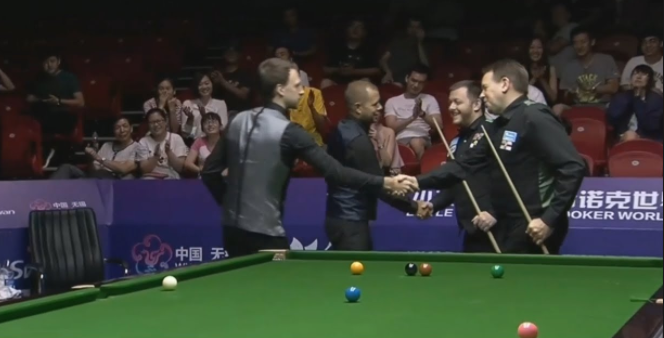
Will it be in China in 2019?
The main sign that the World Cup had been a success would be that if a different country hosts the World Cup in 2019. The obvious questions are that which countries are able to host such a tournament and also whether that host nation will be allowed to have a B team of their own? To my mind, the United Kingdom, Republic of Ireland, Hong Kong and Thailand are the only ones famous enough to hold such a capacity but it wouldn’t surprise more if more success grows in Europe Belgium or even Germany can host. Maybe Australia can host a snooker event for the first time since John Higgins won the Australian Goldfields Open against Martin Gould in 2015. The future seems to be bright, especially if they keep attracting the talent and if they sort out the clarifications of eligibility and how to progress in the World Cup, we could be a very important tourney!

